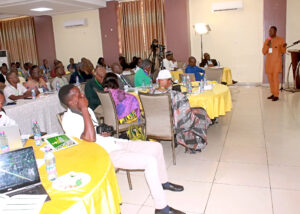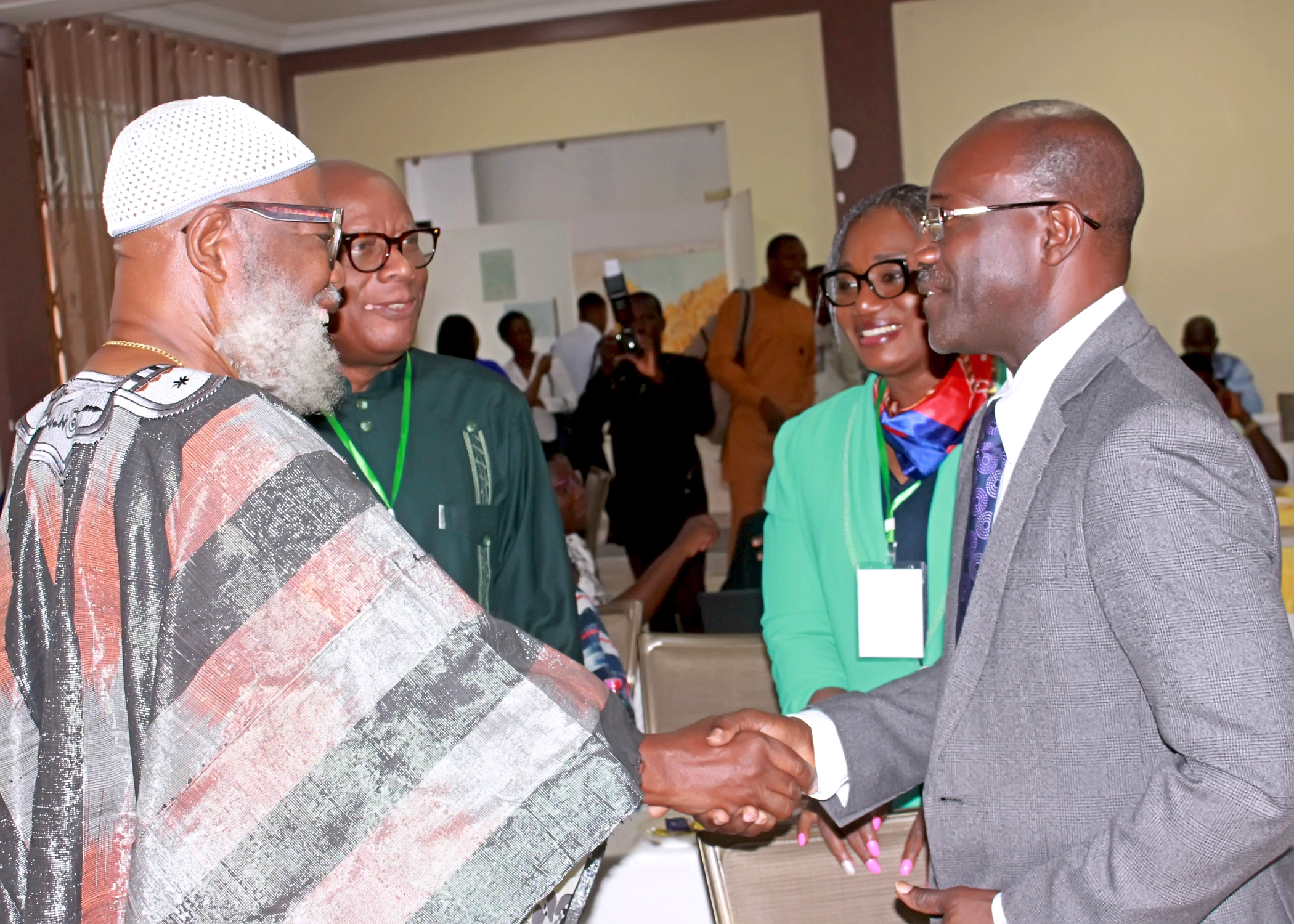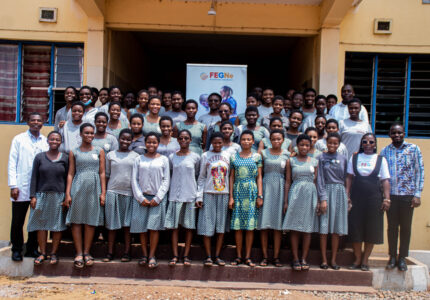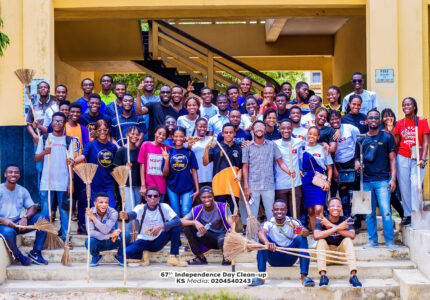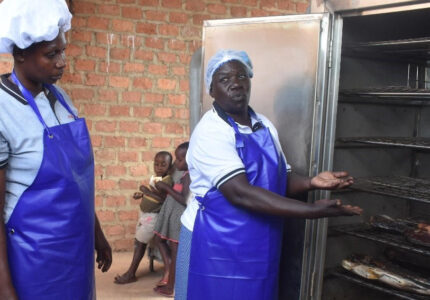Part of a communique issued by participants of the third national seed forum which took place from the 7th to the 10th of November, 2022 in Accra has encouraged the Government to progressively create the necessary platform for safe and effective use of biotechnology applications and Genetically Modified (GM) crops in the national seed industry as a means of rapidly attaining the national food security goals. Themed “Facilitating Seed Industry through Knowledge, Collaboration and Strategic Planning”, the forum was attended by participants from the Ministry of Food and Agriculture (MoFA), other Ministries, Departments and Agencies (MDAs), research institutions, farmer organizations, seed companies, civil society organizations, research institutions and development partners.
The President of the National Seed Trade Association of Ghana (NASTAG), Kwabena Adu-Gyamfi, who was a signatory to the communique, in an interview with Love for Science said that many people confuse biotechnology to be only Genetically Modified Organisms (GMOs) although it does go beyond that. He noted that the use of science and biotechnology should be encouraged due to its importance in crop improvement, adding that the technique provides quicker results than conventional breeding techniques while also making it easier to track genes of interest.
“A practical example is, our institution together with the University of Ghana in crop research has just released five varieties of tomato production in Ghana. It took us nine years for us to get into the quantity we wanted. Now, if biotechnology was available, we could easily track the kind of genes we want that would give the tomatoes the same qualities we need, and then it would have been quicker,” he said.

President of NASTAG, Kwabena Adu-Gyamfi
In a separate interview with Mr. Josiah Wobil, Chairman of the National Seed Council, and the second signatory to the communique, he stated that Ghana as a progressive country would like to join the international community to explore all that is available to be able to address issues of food and nutrition security. He said that the advancement of the genetic modification (GM) technology and also GM as a science provides mankind with an opportunity to address the yawning gap between population growth and food availability as well as the opportunity to once again overcome the fear that mankind will not be able to feed itself.
The National Seed Council is a statutory agency created by the Plant and Fertilizer Act 803, 2010 (Ghana’s seed law). It is the body responsible for advising government on seed policies, regulation, laws and all the various protocols which are used in the seed sector. It also regulates all the stakeholders in the seed sector including the industry.
“We need seed growers and seed companies which will be able to follow the procedure for seed multiplication, field inspection, plant protection, laboratory investigation, seed processing and proper storage. They are going to take the material which has been released and make sure that it is multiplied while observing biosafety rules and regulations. We need them to make sure that the trait that they (the seeds) started with, will go all the way until it is delivered to the farmer to fully benefit from it,” Wobil says.
Ghana has a seed policy written in 2013 which gently articulates intentions, objectives and specific policy actions that the nation needs to be taken to explore science and while protecting its people against any possible hazards.
Wobil said The National Seed Council has been following the GM development situation very closely and believe the issue of discretions and concerns among stakeholders are being addressed. He said Ghana will enter into a GMO situation fully prepared and fully engaged with each other to make sure that best is derived from the technology while at the same taking care in making sure there is adequate protection against possible hazards.

Chairman of the National Seed Council, Mr. Josiah Wobil
“We know that GM technology and science may have possible hazards but so does every new technology potentially bring in its wake. This is why Ghana has wisely advanced its biosafety acts, regulations and processes which give adequate protection long before even attempting to put a GMO variety on the table. If it’s taken up to this time to try put a GMO material on the market, we’ve been that careful. The possibility of releasing the Bt cowpea to the scene in a short while has had so much work done on it. The results are very convincing both in analysed data as well as physical observation of field performance, and there is no doubt that the advantages of this breakthrough will be huge to the extent farmers won’t have any complain.”
“The people who are so scared of the whole concept and technology are themselves actually those consuming the materials. GM foods are all over the place but I’m not the one to advocate to frighten the people. I look at it the other way round to let them know the GMOs are helping us because, the scientists producing them are more sophisticated in biosafety than us. And even before our attention was drawn to these technologies, we were enjoying these foods without we knowing. The point is that, we haven’t done anything yet with which anybody can say is bad. Our first products are just about to come out and when they come out, we will prove the advantages they bring to the table,” Wobil added.
Participants recommended that Government support the training of all categories of staff in biotechnology, provide infrastructural and logistical support, and support the setting up of laboratories in the appropriately mandated agencies, in their work of unearthing technology innovations to find effective and sustainable solutions to the current global food crisis.
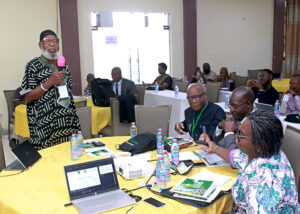
According to Adu-Gyamfi, care should be taken in accessing the technology since it is new. He said, after scientists have explored the technology, students can be introduced to it. He mentioned the need for investment in the country’s research institutions to be able to handle and efficiently utilise the technology.
Wobil on this, pointed the government’s need to do more to build capacities to appropriately handle the technology. “I think the chapter on GMO or biotechnology in the national seed policy clearly indicates the needful that must be accomplished. One of them is the creation of adequate human capacity and that is critical. The government has been trying but I think more needs to be done. We need to ensure that more young people to go out to acquire more knowledge to turn to man critical areas of research and technology,” he said.
Citing Tanzania as an example, he said Ghana needs to follow its lead in development of equipment and facilities to enhance the use of the technology.
Ghana is yet to release its first genetically modified crop, the Bt cowpea, which experts suggest will open doors for developments in the sector.
